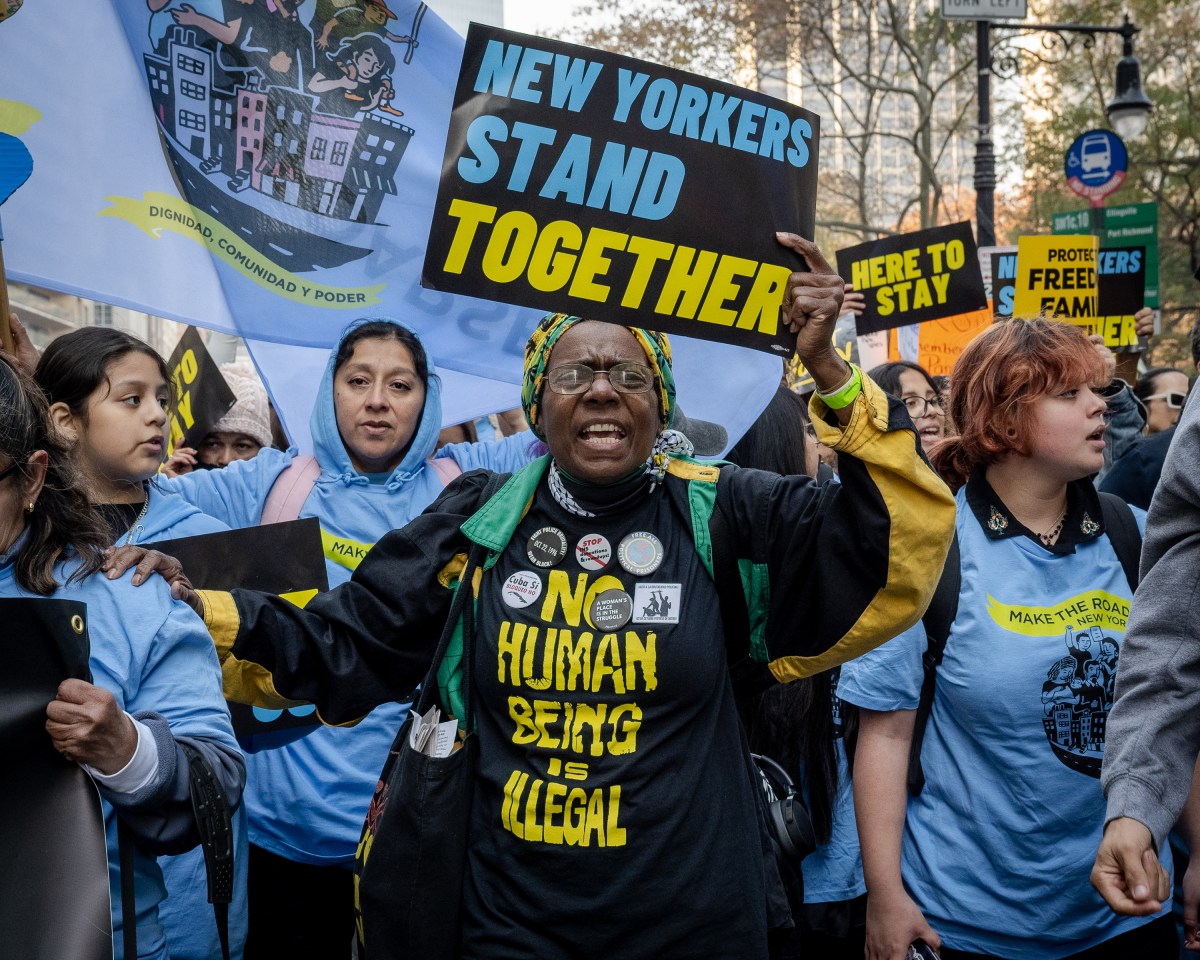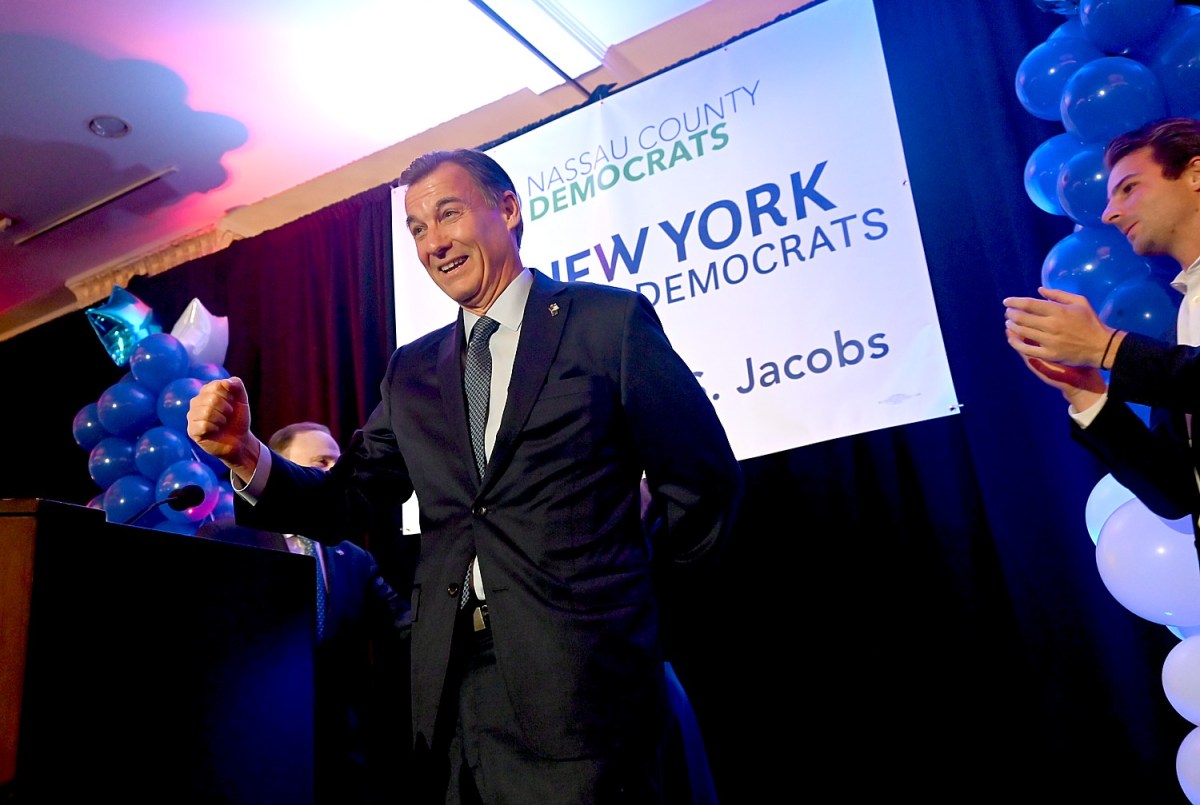Congressman-Elect Sean Patrick Maloney, flanked by his partner Randy Florke, on Election Night. | SEANMALONEY.COM
With his election to the US House of Representatives from the 18th district in the Hudson Valley, Sean Patrick Maloney made history as the first out gay or lesbian New Yorker elected to Congress.
Maloney, a 46-year-old attorney who served for three years on the White House staff during the Clinton administration and was first deputy secretary for Governors Eliot Spitzer and David Paterson from 2007 to 2009, defeated freshman Representative Nan Hayworth by a margin of roughly four percent.
In his victory speech to supporters on November 6, Maloney said, “Tonight, the Hudson Valley voted for change.” He added, “We entered this campaign as Democrats and Republicans, but we must end it now as Americans. I am not going to Congress to be the Democrat in Congress. I am going to Congress to be your representative in Congress, for everybody in the Hudson Valley.”
With that conciliatory, bipartisan gesture, Maloney moved to put a bitter, hard-fought campaign behind him — one in which he repeatedly invoked the incumbent’s ties to the Tea Party movement that swept her into office two years ago and her support for the Paul Ryan GOP House budget that would, he said, “break the promise of Medicare, end the guarantee of Medicare.”
For her part, Hayworth questioned how strong Maloney’s ties were to the former president — who campaigned for him and whom the victor thanked on Election Night — saying her opponent was not a “Clinton Democrat,” but rather a “Pelosi Democrat.”
But Hayworth clearly understood her vulnerability on the Tea Party question this year in a district that includes portions of Dutchess and Westchester Counties and all of Putnam and Orange Counties. The 52-year-old Westchester ophthalmologist offered frequent praise for both Clinton and Governor Andrew Cuomo, but she would not join Maloney on two popular environmental issues — the closure of the Indian Point nuclear power plant or an outright ban on hydrofracking.
And, asked about her Tea Party support at an October 15 debate, she responded, “I was proud to have the support of people with my view of the constitutionally-defined role of the federal government… We have a federal government that reaches too far into our lives and too far into our pockets.”
Hayworth, who has a gay son, was one of the original sponsors in the House of the Tax Parity for Health Plan Beneficiaries Act, which would end the tax imposed on employer-provided domestic partner health benefits that are exempt if given to a different-sex spouse. Still, she never endorsed marriage equality, merely voicing her “respect” for the fact that states determine marriage eligibility and that New York had made its choice.
Mindful that New York’s LGBT community was not only enthusiastic about electing its first member to Congress but also about having representation unambiguous in pressing for its full participation in society, Maloney, in a November 7 note to supporters, wrote, “I’m headed to Congress fired up and ready to help make this country a place where the words ‘equality’ and ‘opportunity’ carry serious weight.”

































